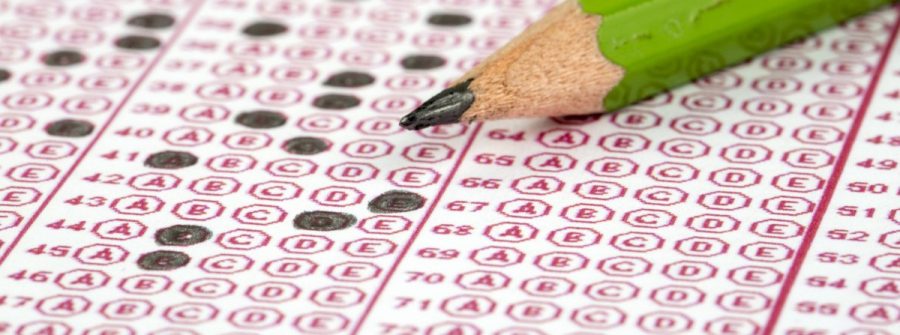To Test, or Not to Test
Standardized testing has been a part of the American Education system since the mid-1800’s, but has only recently become mandatory from 2002’s “No Child Left Behind Act.” In March 2022, Hunterdon Central students face the effects of testing events due to Junior NJGPA testing, which resulted in 9th, 10th, and 12th grade students facing scheduling changes. This has brought up the discussion about standardized testing, and it has become a popular one among Hunterdon Central students. Some think it’s stupid, some see it as a necessary annoyance, and some aren’t even awake enough to comprehend what’s happening. So, let us take a look into the debate that has more recently become a very hot topic: Is standardized testing good or bad for students?
To start, standardized testing can be a good measurement of education at a school. Grades alone are not an accurate measure of where students are, because an A in one teacher’s class could be a C in another. Standardized testing also eliminates many outside factors that are unavoidable in classroom learning. Therefore, testing offers a unified measure of a student’s knowledge. Aaron Churchill, the Ohio Research Director for the Thomas B. Fordham Institute says that, “at their core, standardized exams are designed to be objective measures. They assess students based on a similar set of questions, are given under nearly identical testing conditions, and are graded by a machine or blind reviewer. They are intended to provide an accurate, unfiltered measure of what a student knows.” And with the unbiased results from testing, schools are able to know which departments or systems of teaching need improvement. Another reason why standardized testing is necessary is because it allows students to practice what may be a necessary blockade in job certification. In many fields, testaking will most likely be necessary to enter the job. So in a way, standardized testing prepares students for the real world, because some tests they may encounter in their lives will be mandatory.
Although there are benefits to standardized testing, there are also plenty of negatives. Many students would feel confident in saying that one of the major issues that come with standardized testing is the schedule changes. With a great portion of the Junior class not being able to test on Monday, March 14, due to technical difficulties, testing was pushed back not one, but two days, messing up the already out-of-the-ordinary schedule. Because of this, testing moved into another week, instead of just staying one full week like it was supposed to. Additionally, to make up for this lost testing day, Juniors are being pulled out of their classes to complete their missing testing part. This has also affected the teachers, having to make plans that do not waste class time while simultaneously making sure that whatever they do can be easily made up by the Juniors missing class. Also, the continuous changes have led to a good portion of teachers becoming equally confused with the testing schedule. Not only this, standardized testing can also be an issue because it stresses out the already stressed out Junior population. The NJGPA is a graduation requirement, and being told this can really worry some people.
So, is standardized testing good or bad? It does have benefits in the future for students, but it depends if you really think the present difficulties are worth it. It should be taken into account however, that ever since COVID-19, most colleges and universities have become test optional. So for all we know, standardized testing may become a thing of the past sooner than anticipated.





